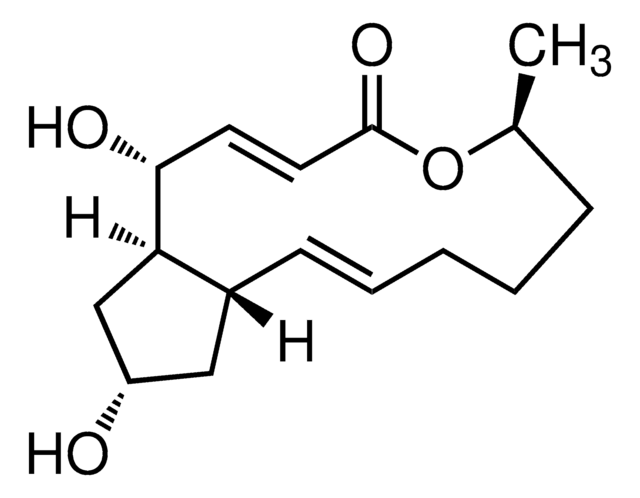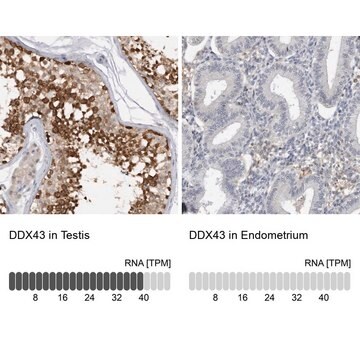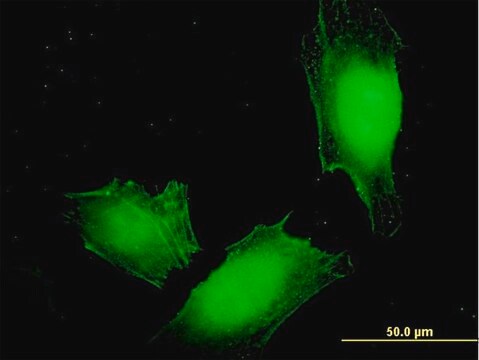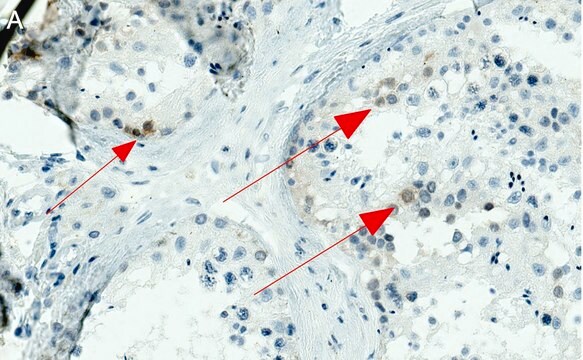N2038
Anti-NY-ESO-1 antibody, Mouse monoclonal
clone E978, purified from hybridoma cell culture
Synonym(s):
Anti-CTAG1, Anti-Cancer/Testis Antigen 1
About This Item
Recommended Products
biological source
mouse
Quality Level
conjugate
unconjugated
antibody form
purified immunoglobulin
antibody product type
primary antibodies
clone
E978, monoclonal
form
buffered aqueous solution
mol wt
antigen ~23 kDa
species reactivity
human
packaging
antibody small pack of 25 μL
concentration
~1 mg/mL
technique(s)
immunohistochemistry: suitable
indirect ELISA: suitable
western blot: 1-2 μg/mL using SKMel-37 total cell extract
isotype
IgG1
shipped in
dry ice
storage temp.
−20°C
target post-translational modification
unmodified
Gene Information
human ... CTAG1B(1485)
General description
Immunogen
Application
Biochem/physiol Actions
Physical form
Disclaimer
Not finding the right product?
Try our Product Selector Tool.
Storage Class
10 - Combustible liquids
wgk_germany
WGK 3
flash_point_f
Not applicable
flash_point_c
Not applicable
ppe
Eyeshields, Gloves, multi-purpose combination respirator cartridge (US)
Choose from one of the most recent versions:
Already Own This Product?
Find documentation for the products that you have recently purchased in the Document Library.
Our team of scientists has experience in all areas of research including Life Science, Material Science, Chemical Synthesis, Chromatography, Analytical and many others.
Contact Technical Service







